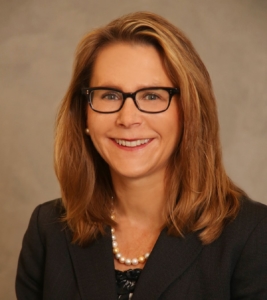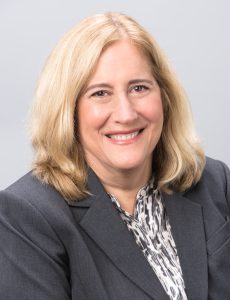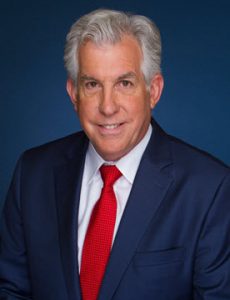Claudia Toussaint

Claudia Toussaint
Some of the most powerful influences in our lives emanate from things we cannot see – legal frameworks, for example. The impact of the law is pervasive not only in our personal lives, but also in the intricacies of our economy, and Claudia Toussaint has dedicated her career to understanding these intersections.
Growing up in Germany, Claudia originally found out about UCLA through the experiences of her mother, who attended the Westwood institution for a short spell before securing a Fulbright Scholarship. Inspired by her mother’s experience and the school’s reputation, Claudia decided to explore an academic experience in the United States; but her journey was not a walk in the park.
UCLA initially rejected her. So, she made her way to the admissions office, out of genuine curiosity, academic records in hand, to ask how she could improve her future chances. Upon further review, Claudia was offered enrollment at UCLA, and her life as a Bruin began on the heels of perseverance. “When you are curious, when you really want to understand the reasons behind decisions, that is something that can pay off in unexpected ways,” Claudia shared.
Claudia’s immersion at UCLA exposed her to one of the campus’ most appealing traits: its diversity. She did not just experience diversity of race, ethnicity or religion, but diversity of ideas, backgrounds, personalities, and even academic opportunities. In Westwood, she had the ability to take classes across multiple fields of study while establishing a strong quantitative background within her economics major. She found one of her strongest connections with an international student from China, and the two worked together to refine their interdisciplinary skills and exchanged perspectives about their very different countries of origin.
In 1988, Claudia graduated from UCLA with a degree in economics, and quickly sought to expand her skill set. “I thought the law would be a good way to apply what I learned, and build upon what I perceived as my strengths,” Toussaint said.
That fall, Claudia enrolled at University of California, Hastings College of Law, where she could continue exploring the intersections between business and law. Her experiences in law school built upon the analytical skills developed in her economic studies and enabled her to better understand the law’s invisible influence on societies. Once Claudia had earned the credentials necessary to become a practicing attorney, however, a new obstacle confronted her: a professional environment historically dominated by men.
In a field where less than 21% of lawyers were female at the time, Claudia secured a job as a transactional attorney at Morrison & Foerster in Los Angeles, spending five years at a firm that embraced diversity and her ability to practice law at the highest levels. But her greatest strengths still lay in her interdisciplinary thinking, and in 1997, she joined Sprint’s in-house legal team in the Kansas City area. She eventually went on to become the company’s Vice President and Corporate Secretary. She used her talents to build diverse, dynamic and high-functioning legal teams, and to support milestone corporate transactions, including the elimination of the company’s tracking stock structure, the $35 billion merger with Nextel, and the spin-off of Embarq. In the fall of 2014, after General Counsel roles in several companies, Claudia joined Xylem Inc., a water technology business.
At Xylem, Claudia serves as the Senior Vice President, General Counsel and executive sponsor for the company’s ESG (Environmental, Social & Governance) strategy. She helps shape the company’s strategy and execution, all aimed at solving the world’s greatest water challenges with innovative technologies. She also continues to be a strong advocate for building diverse and inclusive teams, knowing it will give Xylem a competitive talent advantage and accelerate the innovation necessary to realize the company’s ambitions. Her contributions go well beyond addressing legal or regulatory matters; her days are largely filled with questions that require policy and resource trade-offs, with a heavy reliance on interdisciplinary data analysis and, ultimately, alignment with the company’s values of respect, responsibility, integrity and creativity.
“In economics, you think about resource allocation, and in my work I spend most days thinking about precisely that,” Claudia said. “In addition, the grounding in economics finally enabled me to feel comfortable understanding, using and challenging numbers, whether they are about finance, operations or social impact,” Claudia said. “To make a difference, whether in business or in broader society, it is incredibly important to be conversant in the language of business, which largely is a language of numbers.”
Claudia now reflects fondly and with gratitude on her days at UCLA, where she says she learned a fundamental lesson: curiosity is invaluable. “Professionally and personally, curiosity will drive your discovery of whether you’re on the right path,” Claudia said. “I really found my path when I became genuinely curious about how and why things are the way they are and I give huge credit to UCLA for awakening and nurturing that curiosity in me. It is the reason I am so passionate about the value of learning for us as individuals and as societies.”



